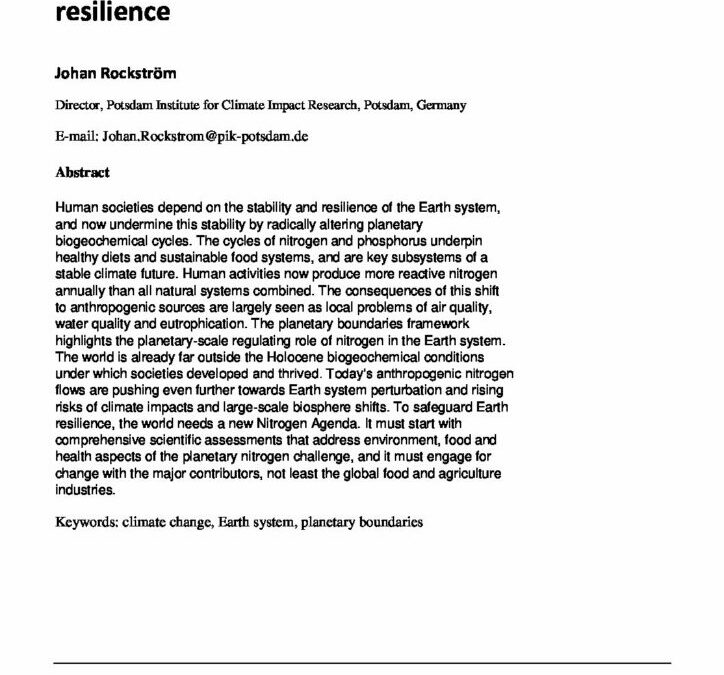Nitrogen: of planetary importance for Earth resilience

Human societies depend on the stability and resilience of the Earth system, and now undermine this stability by radically altering planetary biogeochemical cycles. The cycles of nitrogen and phosphorus underpin healthy diets and sustainable food systems, and are key subsystems of a stable climate future. Human activities now produce more reactive nitrogen annually than all natural systems combined.
The consequences of this shift to anthropogenic sources are largely seen as local problems of air quality, water quality and eutrophication. The planetary boundaries framework highlights the planetary-scale regulating role of nitrogen in the Earth system. The world is already far outside the Holocene biogeochemical conditions under which societies developed and thrived. Today’s anthropogenic nitrogen flows are pushing even further towards Earth system perturbation and rising risks of climate impacts and large-scale biosphere shifts. To safeguard Earth resilience, the world needs a new Nitrogen Agenda. It must start with comprehensive scientific assessments that address environment, food and health aspects of the planetary nitrogen challenge, and it must engage for change with the major contributors, not least the global food and agriculture industries.
